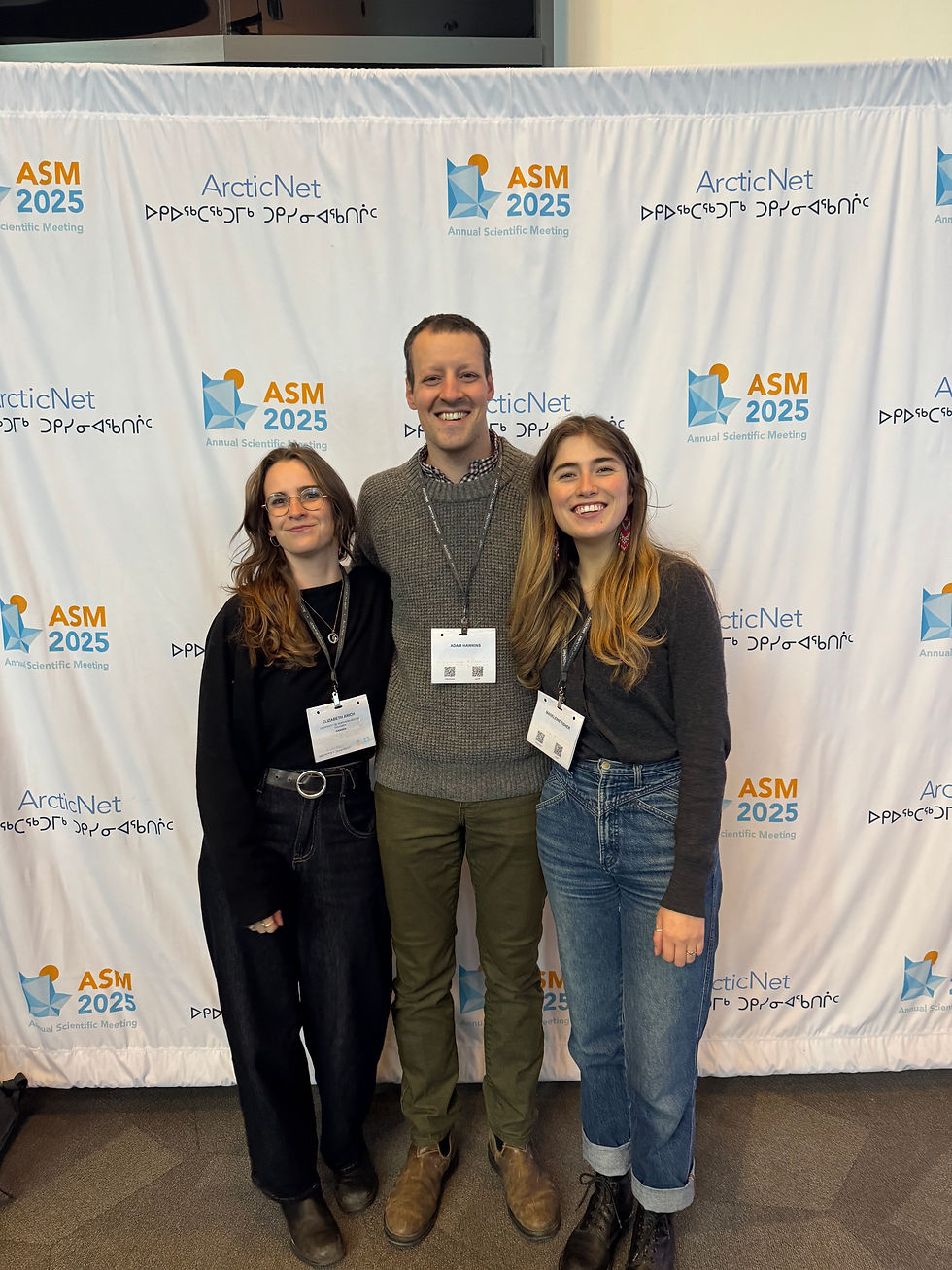Stephanie Chan Thesis Defence
- ECRG

- Apr 11, 2024
- 2 min read
Stephanie successfully defended her thesis on April 3rd, 2024! Huge congratulations to Stephanie on this academic milestone.
THESIS/DISSERTATION ENTITLED: LINKING INUIT AND SCIENTIFIC KNOWLEDGE IN COASTAL MARINE RESEARCH: ADVANCING OUR UNDERSTANDING OF GREENLAND COD (GADUS OGAC) NEAR ULUKHAKTOK, NORTHWEST TERRITORIES UNDER A CHANGING CLIMATE
ABSTRACT: The Arctic is warming at an unprecedented rate, with implications for the marine ecosystem and species that are important for the tradition, culture, and livelihoods of Indigenous people. Inuit in the western Canadian Arctic have identified a need to better understand the impacts of a changing climate on coastal marine species important for subsistence. Greenland cod, ogac, (Gadus ogac) are found in the coastal marine ecosystem and are reportedly experiencing changes in population dynamics in recent years. In this thesis, I present findings from Inuit and scientific knowledge of Greenland cod as a means of linking knowledge systems to advance our understanding of this species and discuss the implications for Inuit livelihoods under a changing environment. The objectives of this research were to: (1) investigate the adaptation potential of Greenland cod, (2) document Inuit knowledge of this species, and (3) review the cumulative findings of Greenland cod research and discuss the potential impacts of shifting marine resources on livelihoods in the Inuvialuit Settlement Region.
I measured individual specialization-generalization of morphological and habitat-trophic traits from Greenland cod collected along the marine coast near Ulukhaktok, Northwest Territories, NT, in the western Canadian Arctic. I then used this information to elicit discussion on their morphology, feeding, and movement behaviour with key knowledge holders in Ulukhaktok. Scientific findings from this project suggest that Greenland cod are overall generalists but display a range in feeding behaviours for two identified morphotypes. These findings highlight the importance of maintaining trait variation to conserve biodiversity while promoting population resilience in wild fish populations. Inuit knowledge holders were able to situate the findings within the broader context of ecosystem change and build a rationale for some of the phenomena observed. Linking Inuit and scientific knowledge was a two-way process in which the knowledge systems built off one another to inform the next steps in the research process and interpret the findings more holistically. The cumulative findings advance our understanding of the baseline ecology of this species and intend to inform the design of future research using Inuit and scientific knowledge to generate enriched findings. The knowledge gained and lessons learned from this study can serve as a tool for establishing additional conservation efforts that may be required in the future to ensure a sustained Arctic marine ecosystem can continue to support Inuit subsistence and livelihoods.
COMMITTEE MEMBERSHIP:
Chair: Dr. Thomas Tannert, University of Northern British Columbia
Examining Committee Members:
Supervisor: Dr. Tristan Pearce, University of Northern British Columbia
Committee Member: Dr. Nigel Hussey, University of Windsor
Committee Member: Dr. Lisa Loseto, University of Manitoba,
Department of Fisheries and Oceans Canada
Committee Member: Dr. Harri Pettitt-Wade, University of Windsor,
Fisheries and Oceans Canada
External Examiner: Dr. Eranga Galappaththi, McGill University




Comments